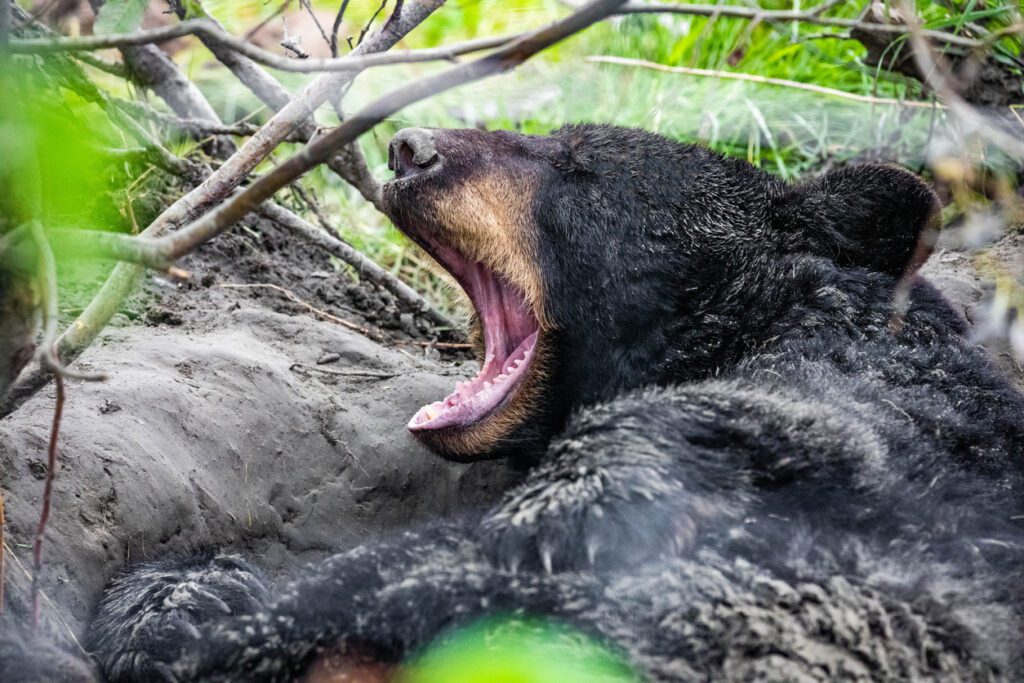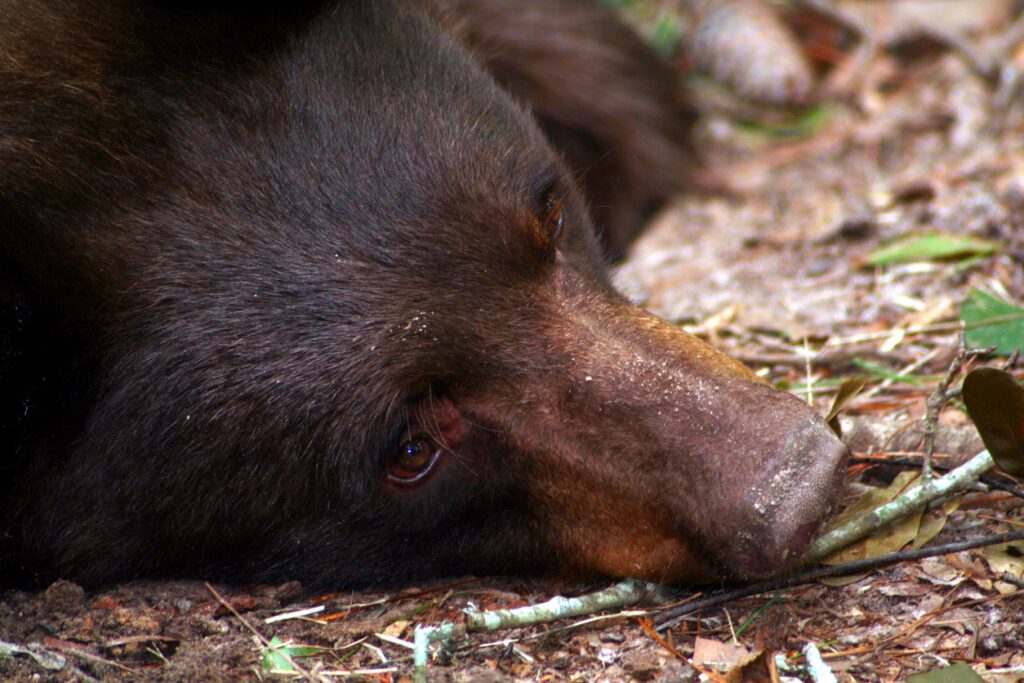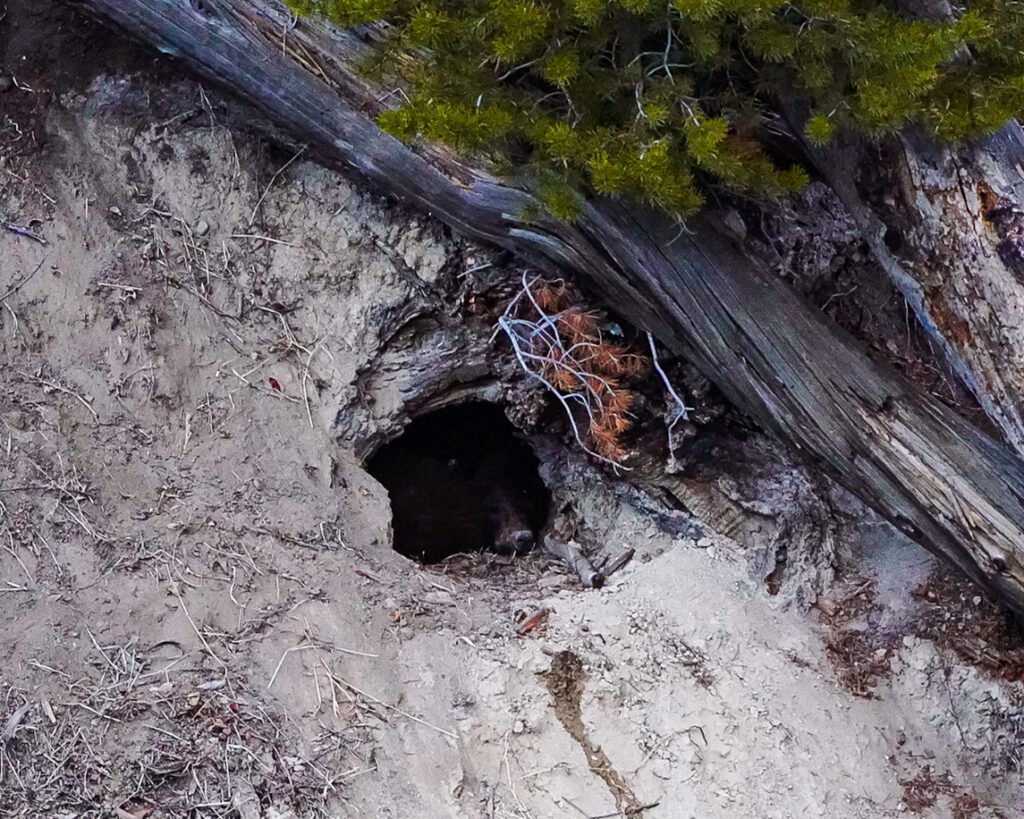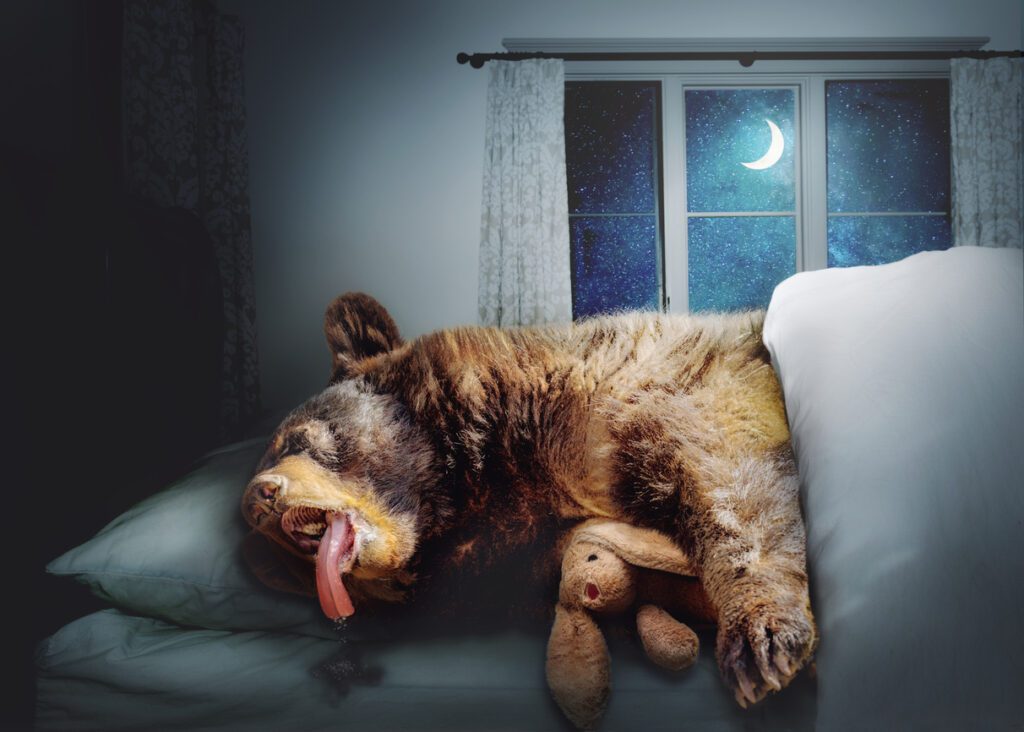Heavy snow storms recently moved eastward through Arnold and into the deeper Sierra Mountains, and what was left was beautiful pristine snow. Slowly animals began following their memorized route on the game trail through my property and left their tracks in the snow. None of the animals were large predators; well, there was one bobcat, but for the most part, there were deer, squirrels, and gray foxes. Then last night, a large black bear walked through. I did not expect the bear, which made me curious about the hibernation cycle of black bears.
So I began researching Black Bear hibernation. Particularly the black bears in the Arnold, CA, area and other parts of the Sierras.
- What is the duration of hibernation for Black Bears?
- What does the bear experience during hibernation?
- Is it the same for a mother bear and her cubs?


Black bears hibernate from November to March, depending on the weather. So, Black bears usually hibernate from late fall to early spring. They typically den in a cave, hollow tree, or under a rock overhang and sometimes beneath unoccupied cabins.
What triggers black bears to begin hibernation? The change in daylight hours is one factor. As the days become shorter in the fall, black bears’ bodies produce more melatonin, which makes them sleepy. The weather is another factor- as it gets colder outside, black bears’ bodies prepare for winter by storing fat. This fat provides them with energy to get through hibernation.
During hibernation, the bears enter into a state of deep sleep. Their heart rates slow down from 55 beats per minute to 8-10 beats per minute, and they do not eat or drink; their metabolic rates slow down significantly! As a result, black bears can go for several months without eating or drinking during hibernation. Black bears do not urinate or defecate during hibernation, either. Instead, their bodies recycle waste products.
When black bears hibernate, their body temperatures drop, and they breathe very slowly. Therefore, black bears do not actually “sleep” during hibernation- their brain waves are similar to awake humans. Black bears awaken from hibernation if disturbed, but they usually go back to sleep quickly.
Mother black bears and cubs hibernate together in dens. The mother bear will often build the den herself, using her claws and teeth to dig a hole in the ground or find an existing structure like a cave or hollow tree. Once the den is completed, the mother bear will line it with leaves and other soft materials to keep her cubs warm.

Cubs are born in the den during hibernation. They are tiny at birth- usually only about a pound or two. However, black bear cubs grow quickly; they are typically ready to leave the den and explore the world by spring.
Thank you for reading this blog post; I hope you enjoyed accompanying me on my journey to learn more about black bear hibernation! If you ever have the chance to see a black bear up close and personal, remember that they are wild animals and should not be approached. Instead, enjoy them from a safe distance and admire their beauty!
If you have any questions or comments, please leave them in the Comments section below.
© 2019 I Don’t Know All The Answers, Nikki Mastro
All of my photographs and documents are Copyrighted.

